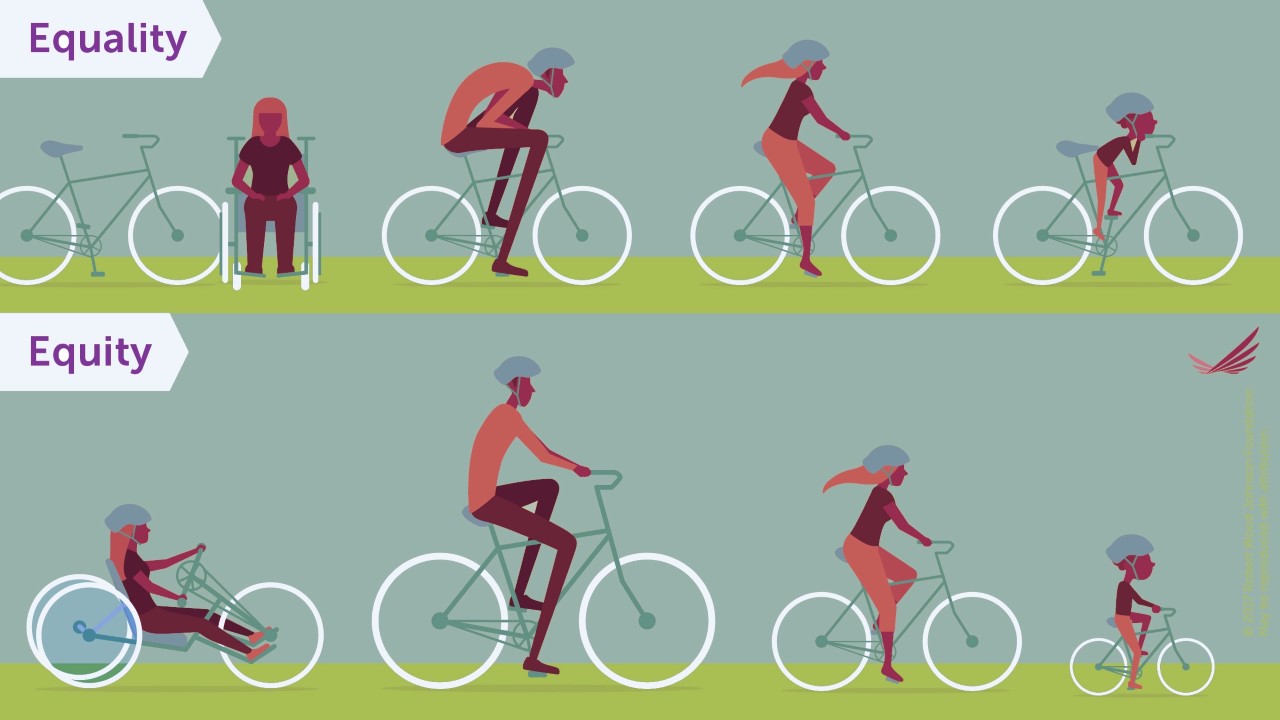Understanding Equity
Equality and equity are similar concepts, but their differences matter. Equality is treating all people the same and providing equal access to opportunity. Equity refers to proportional representation based on circumstance (e.g., class, race, gender). As an example, providing Medicaid to low-income individuals is not an equal distribution of these resources; instead, it is an equitable one. In much of our world, where some groups have historically had fewer opportunities and resources, an equitable approach should be considered to mitigate the existing inequalities.

Understanding Privilege
Acknowledging and understanding privilege allows you to recognize there are things you may take for granted that is not granted to everyone. It is about understanding others may not have the same experiences that you do. Reckoning with this is a crucial part of developing cultural competence and humility and working within the diverse communities of which we may be a part. Privilege comes in many forms such as class, race, ethnicity, citizenship, gender identity, linguistics, and ability.
Recognizing your own privilege is not about guilt; rather, it is about realizing the barriers facing others through the lens of your own experiences. For example, are you accustomed to routine healthcare and access to nutritious foods? That may be a result of privileges afforded to your class that others do not benefit. Are you accustomed to days off from work or school for holidays that are culturally or religiously important to you? Identifying as the dominant ethnicity and religion provides these privileges.